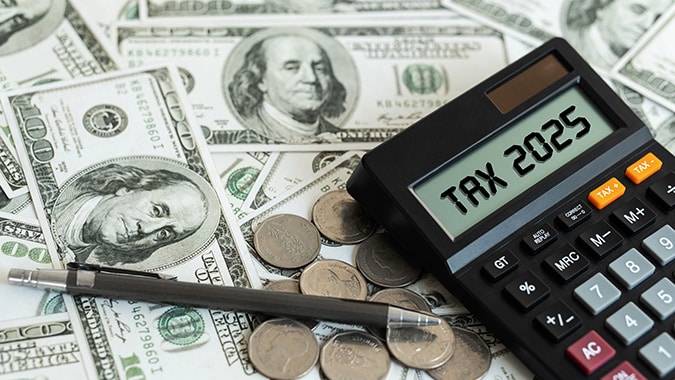The Tax Foundation, a nonpartisan Washington think tank, has released its 2025 State Tax Competitiveness Index and once again ranked New Jersey’s tax structure as among the worst in the nation.
Formerly known as the Business Climate Index, the foundation ranked the five worst states for overall tax competitiveness as New York (No. 50), New Jersey (No. 49), California (No. 48), the District of Columbia (No. 47), and Connecticut (No. 46).
The most competitive states are Wyoming (No. 1), South Dakota (No. 2), Alaska (No. 3), Florida (No. 4) and Montana (No. 5), the foundation said.
“The states in the bottom 10 tend to have a number of afflictions in common: complex, nonneutral taxes with comparatively high rates,” the foundation said.
“New Jersey, for example, is hampered by some of the highest property tax burdens in the country, has the highest-rate corporate income taxes in the country, and has one of the highest-rate individual income taxes,” the foundation said. “Additionally, the state has a particularly aggressive treatment of international income, levies an inheritance tax, and maintains some of the nation’s worst-structured individual income taxes.”
Despite the dismal report card, New Jersey improved one spot from last year’s 2024 State Tax Competitive Index, when the Garden State was ranked last at No. 50. The bipartisan reforms made to state tax law covering Global Intangible Low Tax Income may have moved the needle for New Jersey slightly, but those changes were outweighed by all the other noncompetitive aspects of the state’s business tax structure, the report said.
“New Jersey largely removed GILTI from its tax base, a positive reform that was nonetheless not enough to budge the state from its unenviable position between New York and California, at 49th overall,” the foundation said.
Since 2014, New Jersey has ranked either No. 50 or No. 49 in the foundation’s annual state tax competitiveness rankings, including seven years in a row from 2018 through 2024 when it was ranked last as the worst state in the nation.
The Tax Foundation’s State Tax Competitiveness Index compares each state on more than 150 variables in the five major areas of taxation (corporate taxes, individual income taxes, sales and excise taxes, property and wealth taxes, and unemployment insurance taxes and then adds the results to yield a final, overall ranking.
“While there are many ways to show how much state governments collect in taxes, the Index evaluates how well states structure their tax systems and provides a road map for improvement,” the foundation said.
New Jersey enacted an individual income tax in 1976 to provide relief from rising property taxes, which are a significant source of funding for the state’s public schools. Today, with a top marginal income tax rate of 10.75%, New Jersey has the highest per capita property tax collections in the nation (and third highest effective rate), the foundation said.
Moreover, New Jersey income tax filers are subject to a marriage penalty and tax brackets are not adjusted annually for inflation.
Corporations pay a top marginal rate of 11.5%, which includes a Corporate Transit Fee surtax on large businesses. Tangible personal property is exempt from property taxation. The state conforms to the federal limitation of 80% net operating loss carryforwards but fails to conform to the unlimited recovery period included in federal law.
Although the estate tax has been repealed, New Jersey still levies an inheritance tax.



